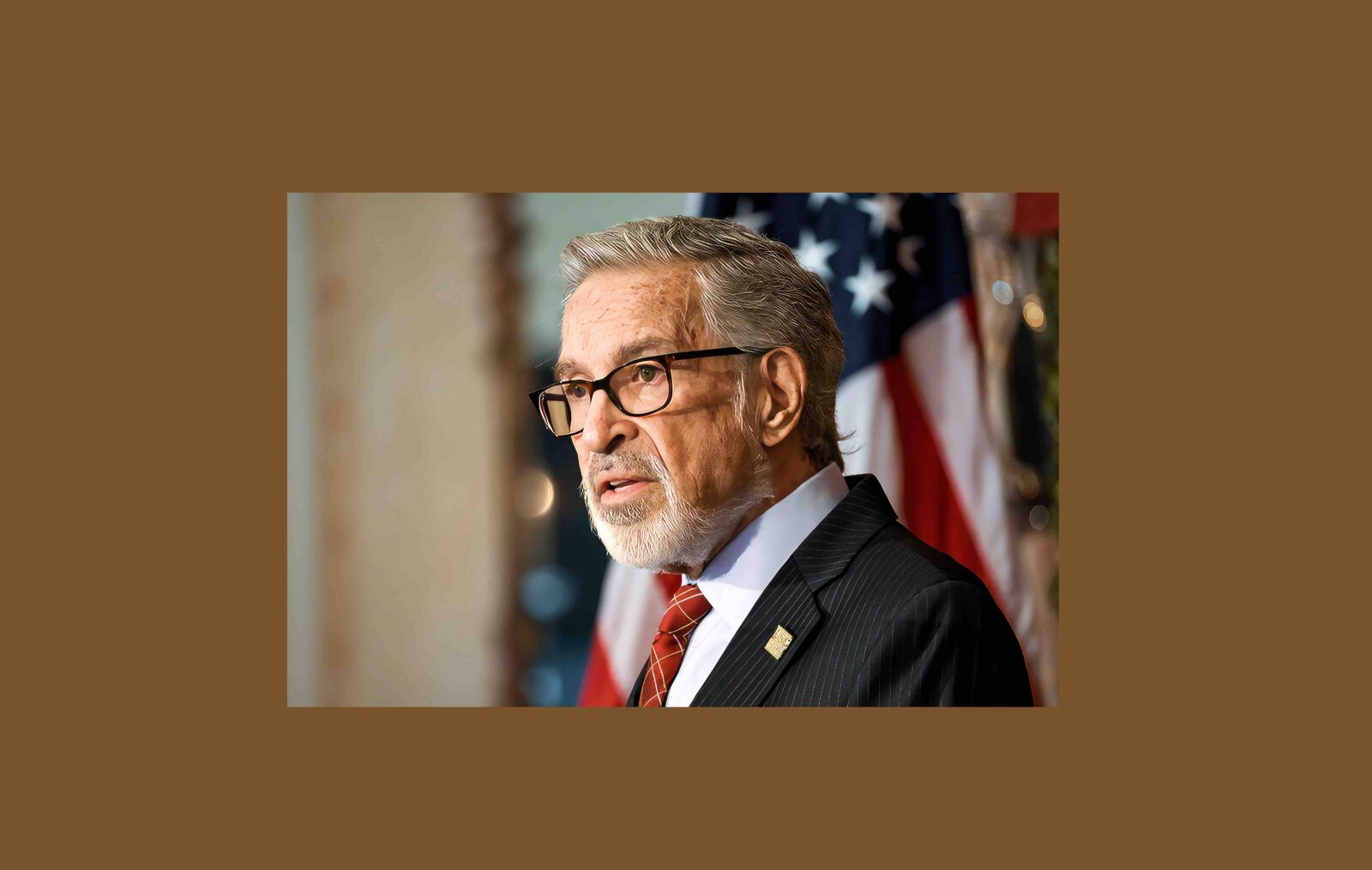$59 million gift from Pamela and Leonard D. Schaeffer creates new public policy institute

Several themes stood out at this weeks’ celebration of USC Trustee Leonard D. Schaeffer: that he’s a powerhouse for good, is a guardian of democracy — and has a good sense of humor.
He described being introduced at an event years ago, with his mother in the second row of the audience.
As Schaeffer’s impressive résumé was described, she whispered loudly to the person sitting next to her: “That’s my Leonard. He just can’t hold a job.”
USC leaders paid tribute to Schaeffer this week at a well-attended luncheon where the university community celebrated the new USC Leonard D. Schaeffer Institute for Public Policy and Government Service, made possible by a $59 million gift from Schaeffer and his wife, Pamela.
USC President Carol Folt called the Schaeffer Institute, which will be anchored at USC’s Capital Campus in Washington, D.C., as well as its University Park Campus, “a future-forward initiative that is poised to make a big impact in the heart of the nation.”
“When I first came to the Board of Trustees about expanding USC’s footprint in Washington, D.C., Leonard was the board member who immediately expressed support,” Folt said. “His deeply held belief was that if we built the right type of presence, it would allow us to magnify the work of all of our researchers and expand the leadership capacity of the amazing students in the Schaeffer Fellows program.”
The Schaeffer Institute brings together under one organization the USC Schaeffer Center for Health Policy and Economics and the Schaeffer Fellows in Government Service program.
The Schaeffer Center, established in 2009, emphasizes an interdisciplinary approach to research and analysis to support health policy. Schaeffer Center experts routinely testify before Congress and meet with influential decision-makers to shape policy based on scientific research. The center’s work runs the gamut from cost-benefit analyses of expanded treatments for hepatitis C to potent revelations about the outsize influence of pharmacy benefits managers on drug prices.
The new Schaeffer Institute will take that model and expand into areas beyond health care.
Suzanne Nora Johnson, chair of the USC Board of Trustees, said that Schaeffer “has been a champion of using scholarship to solve some of the society’s most intractable problems.”
The Schaeffer gift permanently endows the Schaeffer Fellows program, which supports undergraduates in high-level, summer government internships. Established in 2014, at least 50 students each year are selected from five universities — USC, Harvard University, Princeton University, University of Virginia and University of California, Berkeley — for an up-close view of government and public service, preparing them to become the next generation of leaders in research, policy development, government service and public office.
USC alum and former Schaeffer Fellow Ivana Tu Nhi Giang, now at Harvard, offered a powerful testimony to the program’s influence.
“As a Schaeffer Fellow in 2018, my favorite part about interning in the United States Senate was something most others on the Hill wanted to get over with — answering phones. Responding to urgent concerns, I increasingly found myself sharing constituents’ tears by the time we hung up, our voices breaking on both sides of the line,” Giang said. “On those calls, I realized working in government shouldn’t be anything more complicated than serving the public. It’s public service, starting with helping people feel heard.”
Schaeffer, who is one of the top 10 donors in USC history, made a unique career combining public service and health care. He was one of the first administrators of the federal Health Care Financing Administration — now the Centers for Medicare & Medicaid Services. He was the founding chairman and CEO of WellPoint (now Elevance), which serves 47 million medical members and has annualized revenues of $170.2 billion. Under his leadership, WellPoint was selected as America’s “Most Admired Health Care Company” for six consecutive years.
The son of a pharmacist and a social worker, Schaeffer grew up in Chicago and then attended Princeton, where he majored in economics. At his first job, at Arthur Andersen, he became fascinated with programming financial and management systems on an early business computer, the UNIVAC.
Schaeffer has been a USC trustee since 2013 and is the chair of the USC Health System Board, which oversees Keck Medicine of USC. He currently holds the Judge Robert Maclay Widney Chair, and is a professor at USC and a senior advisor to Whistler Capital Partners, a private equity firm. His philanthropic support of policy research has extended to other beacons of influential research, including the Brookings Institution, Harvard Medical School, the National Academy of Medicine, UC Berkeley and USC.
In explaining his vision for the Schaeffer Institute, he said: “Our country is experiencing a series of challenges that are unique in our history. We’re facing many difficult issues around the world. Climate change, pandemics, violent conflicts in Europe and the Middle East, world trade and economic problems, just to name a few.
“And here at home, we have a dysfunctional Congress. We have attacks in our election process … and a growing loss of faith in both science and government,” he continued. “So it’s critical that USC continues to produce research to support evidence-based policymaking and to educate students to be responsible and involved citizens of a true, functioning democracy.”
Dana Goldman, dean of the USC Price School of Public Policy and co-director of the USC Schaeffer Center, is a close friend of Schaeffer, having worked with him for nearly two decades. Goldman’s next mission is to direct the new institute, which formally opens in July, with the broader goal of transforming policy research.
“Leonard, I know you’ve given a lot — but you also expect a lot,” Goldman told Schaeffer. “And it’s a challenge to all of us in this room to meet that commitment. So let’s get to it.”

